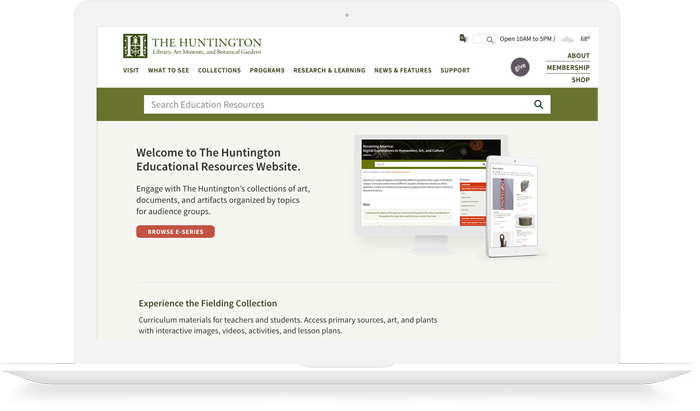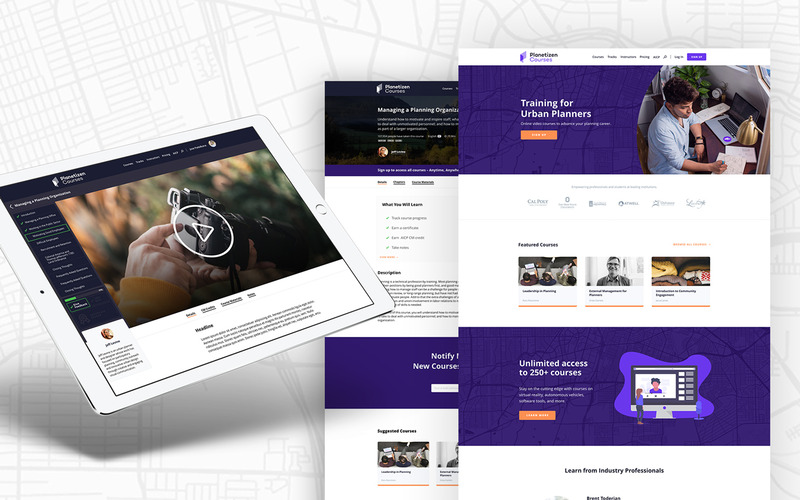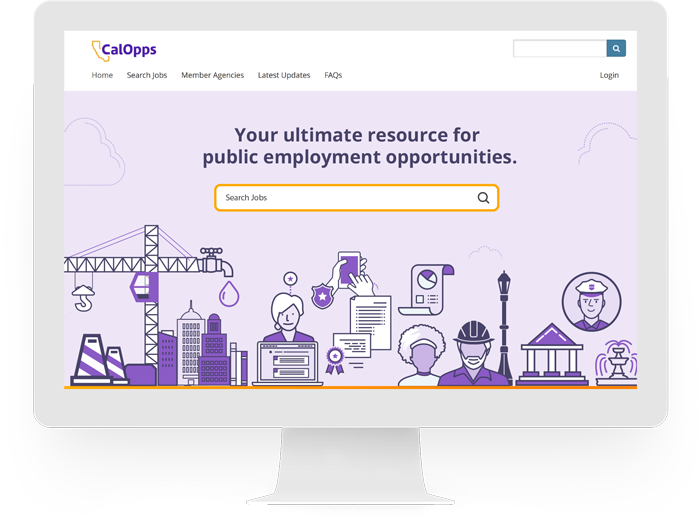In the dynamic world of web development, Drupal consultants play a pivotal role. Let's embark on a journey to explore the diverse range of well-known organizations that leverage and benefit from Drupal's capabilities. Additionally, we'll provide our guidance on what to look for when you need to hire Drupal consultants.
Is Drupal still in demand? What percentage of websites use Drupal?
Drupal's enduring popularity is unmistakable, claiming a spot on over 9 percent of the top 10,000 websites worldwide by traffic.1 Contrary to misconceptions, organizations of all sizes consistently choose Drupal for its reliability and adaptability in meeting their unique needs.
Who should use Drupal?
Drupal is a versatile CMS that boasts benefits for a variety of organizations, including but not limited to the following categories:
- Governmental institutions benefit from Drupal's robust security and scalability, ensuring a reliable digital presence.
- Cultural arts institutions can showcase their creativity seamlessly and integrate with various other systems such as ticketing and online collections.
- Nonprofits leverage cost-effective solutions and benefit from Drupal’s security framework, ease of use, and ability to manage and organize large amounts of content.
- Universities and eLearning / online learning platforms appreciate Drupal’s flexibility and customization, fostering engaging online education.
- B2B businesses thrive on Drupal’s strong SEO features and adaptability, making it a versatile choice, especially for those looking to improve site performance with a headless or decoupled architecture using Drupal as the backend CMS.
- E-commerce Marketplaces can optimize their digital platforms with Drupal’s robust capacity for inventory organization, faceted searching, and user/client-based registration.
For each type of organization and its associated website, skilled Drupal consultants can provide top-notch, tailored expertise, ensuring optimal strategy and utilization of Drupal’s many features.
Does government use Drupal?
The answer is a resounding yes. According to Acquia, as of 2021, 56% of the world's government websites employ Drupal. With over 150 countries embracing Drupal2 for its scalability, security, and compliance features, it's evident why governmental institutions turn to Drupal consultants for tailored solutions in navigating the complexities of the public sector's digital landscape.
Cultural arts institutions and museums use Drupal
Cultural arts institutions and museums, including the Japanese American National Museum, National World War I Museum and Memorial, and The Broad, frequently utilize Drupal for their digital presence.
In general, Drupal accounts for 9% of CMS used in the top 10,000 websites in the world.3 However, those statistics radically change when it comes to which CMS museums choose for their public websites. You can review the data Urban Insight gathered on the top 143 largest museums in the United States, of which 46 (32%) use Drupal as their CMS of choice, tied with WordPress at 46 (32%).
Drupal enables arts and cultural organizations to create visually stunning, user-friendly, and interactive websites, effectively sharing their exhibits, events, and rich content while also converting visitors via donations, tickets and memberships.
Why do universities use Drupal?
Drupal stands out as the preferred content management system for higher education. With 71% of the top 100 universities relying on its flexibility, Drupal adapts seamlessly to diverse needs.4,5 Its intuitive content management empowers faculty, while its commitment to accessibility ensures crucial information reaches students and families. The extensibility of Drupal is not just a choice; it's a strategic advantage for educational institutions.
What is Drupal used for? Why use Drupal?
The enduring appeal of Drupal6 lies in its robust features, unparalleled flexibility, and scalable solutions. It remains a top choice for developing complex websites and applications. With a dedicated open-source community driving continuous improvements, Drupal stands as a reliable choice in the dynamic digital realm.
Below are a few examples of Drupal’s diverse capabilities and applications.
Drupal for hosting a museum or library catalog
The Huntington
The Huntington's Drupal website was redesigned to showcase images of their gardens, museum and library, as well as their onsite events and programs. The site was integrated with their then-recent launch of their educational department site to make for a single cohesive experience.
The redesign process leveraged several important user experience tools and tactics including a usability evaluation that led to a re-envisioned, modern user experience and navigation. New designs for key pages elevated the brand and enhanced the gravitas of The Huntington’s online experience. A refreshed design system created design consistency and reduced the complexity of creating and managing new content. A new calendaring system handles single-day, multi-day, repeating, and ongoing events, as well as enabling variations within event series. The team upgraded the website management software to the latest version of Drupal and adopted a highly-available cloud hosting infrastructure.
Learn more about The Huntington's Drupal website here.

Drupal for virtual immersive experiences (e.g. museum exhibitions)
LACMA
LACMA’s website was migrated to Drupal, expanding website and mobile app functionality, increasing interactivity, and enabling more staff to contribute content, thereby facilitating art exploration. Visitors now enjoy seamless access to LACMA's extensive art collection, spanning the time period since 2000 BC through the present, with 20,000 downloadable images available for free download and use.
Learn more about LACMA's Drupal website here.

National WWI Museum and Memorial
The National WWI Museum and Memorial’s Drupal website includes several complex features such as a micro site that allows editors to build mini sites within the main domain, but also allows them to redefine the branding (e.g. colors and logos) for the set of pages within the micro site.
A holistic redesign resulted in an award-winning website that creates new digital opportunities to engage with educational content. The new website ensures accessibility to all people, across all devices and integrates the Museum’s Tessitura ticketing software for online ticket purchases. The new website was developed using Drupal 9, a modern technology platform that provides the Museum’s website team with a variety of template options for creating new website content.
Learn more about The National WWI Museum and Memorial's Drupal website here.

Drupal for extending the outreach of organizations’ digital platforms with large audiences
Planetizen Courses (nationwide reach)
Planetizen Courses provides online education opportunities covering a wide range of practical tools for urban planners, urban designers, and civic enthusiasts. This functionality was accomplished through development of an e-learning platform built with Drupal content management system—a CMS that could handle the challenges of delivering high quality, streaming video to a broad audience and supporting online payments and subscriptions.
Planetizen Courses subscribers can browse a library of courses by topic, track course progress, take course quizzes, and earn and share certificates of completion.
Learn more about Planetizen Courses' Drupal website here.

CalOpps Jobs Board (statewide audience)
The City of Foster City redesigned and rebuilt a complex Jobs Board application, including the administration dashboard for city staff, and migrated approximately 100,000 legacy employment and HR records from the previous Microsoft SQL Server database to the new system. The system data is considered Personally Identifiable Information (PII), triggering an additional set of security and privacy requirements.
Learn more about CapOpps Jobs Board Drupal website here.

Stay Housed LA website (city-wide audience of Los Angeles)
The Stay Housed LA website prioritized development of a database-driven Drupal website with intuitive interfaces that leverage a headless (or decoupled) architecture with Drupal on the backend, and Next.js on the frontend. The revamped Stay Housed LA site now boasts multilingual support, streamlined navigation to legal resources, event registrations, and service applications. It automates application assignments based on criteria, manages grant profiles, and integrates event management. Automated email and text reminders enhance communication while advanced encryption bolsters data security.
Learn more about Stay Housed LA's Drupal website here.

Is Drupal hard to learn? Do you need to know coding to use Drupal?
Navigating Drupal's intricacies can pose challenges, especially for beginners. To get the most out of Drupal, understanding code becomes crucial, emphasizing the need to collaborate with experienced Drupal developers or Drupal consultants. Their expertise ensures a seamless implementation of Drupal's powerful capabilities, unlocking the full potential for your web development projects whether that is custom features or a content-rich website that requires a delightful user experience (UX). (Note: the need to understand code is not exclusive to Drupal and is also required to get the most out of other popular CMSs like WordPress.)
What programming language does Drupal use?
The primary programming language (code) of Drupal is PHP, CSS, HTML and Javascript. But fear not—an experienced Drupal developer or Drupal consulting company is adept at translating its intricacies, ensuring a seamless implementation for nonprofits, cultural arts organizations, associations / membership organizations, government institutions, and both B2B and B2C businesses.
Is Drupal front-end or backend?
The beauty of Drupal (and many content management systems) lies in its dual nature—it seamlessly handles both front-end and back-end tasks.
- Front-end developers find Drupal's theming capabilities top-notch, enabling the creation of visually stunning interfaces.
- Drupal websites provide a robust backend infrastructure, ensuring seamless functionality, security and scalability.
Understanding this balance is essential for businesses of all stripes. Skilled Drupal consultants guide organizations, ensuring optimal utilization of Drupal's versatile capabilities. Furthermore, Drupal’s admin experience often requires an added touch to ensure an optimal user experience for content authors and admin users.
While historically Drupal handled both the front-end (i.e. what is displayed when you view a webpage) and the backend (the database where all of the content is stored and structured), it has also become a powerful platform for headless websites. In these instances, Drupal’s content management system handles all of the backend data and processing, while the user interface is built in a modern framework such as React, Next.js or Angular. This allows numerous benefits from stronger security, better site performance (i.e. page speed for all devices including mobile, tablet and laptop), improved SEO, the ability for future iterations of the website to be more easily redesigned and redeveloped (i.e., there is no need to redevelop the backend), and a better user experience (leading to higher conversions).
Slow website speeds can result in lost traffic, lower user engagement, and decreased ranking in search engines. Research demonstrates that as little as a one-second delay in web page load time may result in 7% less conversions.7 Furthermore, if a mobile website takes longer than three seconds to load, 53% of visits are abandoned.8 Page speed optimization translates to better user experience, which, in turn, translates to conversion optimization and improved search rankings.
While headless or decoupled websites provide many benefits and are the future of web development, the primary tradeoff is a more costly build to develop the website and a less traditional (though improved) experience for content authoring and website administrators.
Is Drupal better than WordPress?
While both Drupal and WordPress have merits, WordPress is known for its alleged user-friendliness, extensive plugins (often paid), and a vast community. However, keep in mind that, like Drupal, WordPress also requires knowledge of code to get the full benefit of the CMS. Unlike Drupal, WordPress may not be appropriate for intricate and scalable web development solutions, an arena where Drupal prevails. Making the choice between Drupal and WordPress can sometimes be complex.
When you need tailored insights into the optimal web development platform for your unique needs, it becomes particularly important to seek the input of experts. Drupal has also continued to push the envelope and evolve from more than just a CMS into a Digital Experience Platforms (DXP).9 DXPs integrate with various systems and manage digital experiences across a broad range of digital touchpoints making it a more powerful tool for sophisticated marketers, technologists, and organizations.
Why not use Drupal?
As explained above, Drupal does require an understanding of code. Also, while Drupal is highly versatile, it may not suit every project. Organizations must assess their specific needs and potential challenges. This is where it becomes important to seek the advice of experienced Drupal developers or a Drupal development company to guide informed decision-making and ensure a strategic CMS selection right for your business based upon your goals and budget.
Read more about the pros and cons of and alternatives to Drupal here: Evaluating Drupal Pros and Cons: Is it the Ideal CMS?
What does a Drupal developer do?
Drupal developers are the architects of website development, providing expertise in leveraging Drupal's potential. From tailoring the platform to a business's unique needs through writing custom modules to troubleshooting and optimizing performance, these experts ensure a seamless digital journey. They guide organizations in harnessing Drupal's power, making it a strategic asset rather than just a tool.
Below are examples of how a Drupal consultant may approach development of a digital platform.
- Requirement gathering with client (i.e., the Discovery phase)
- Creation of a technical architecture document that outlines implementation requirements
- Use of project management tools such as Jira to organize Agile workflows, such as Scrum
- Use of development tools such as Docker and Git to support dispersed team collaboration
- Use of platforms such as Pantheon, Acquia and Amazon Web Services (AWS) to provide cloud-based infrastructure to support web hosting and application deployment needs.
Where can I find Drupal developers?
The web development industry is highly fragmented with numerous places and platforms offering access to Drupal talent. Navigating this diversity emphasizes the importance of discernment—finding the right fit for your organization and project needs.
Numerous places and platforms offer access to Drupal developers, both online and offline, including but not limited to:
- Specialized service provider rankings (e.g. Clutch)
- Job boards
- Freelancing platforms
- Drupal Association
- Attending DrupalCon (like we have for the last 15 years!).
Being able to discern quality among such diverse options is particularly important to ensure the right fit for your organization and project needs.
What to look for in Drupal consultants
When hiring Drupal consultants, consider key factors that ensure a successful collaboration, like:
- Domain expertise with Drupal
- Awards and recognition
- Experience solving issues for your specific industry
- Training
- Contributions to the Drupal community
- Quality assurance
- Services.
Below is an overview of what to prioritize and consider.
Experience
- Number of Years in Operation: Experience matters. Research how long a Drupal consultant has been in operation, as seasoned professionals bring valuable insights and a proven track record.
- Portfolio: Examine a consultant's portfolio to gauge their expertise. A diverse and successful portfolio showcases their ability to tackle various projects, providing confidence in their capabilities.
- Industry Awards / Recognition: Check for industry accolades and recognition. Platforms like Clutch offer insights into a consultant's reputation. Urban Insight, for instance, has earned multiple Clutch awards over the years, including Top Web Development Company in the U.S., Top Web Design Company in Los Angeles, and Top Drupal Developers. Urban Insight's work has won the Philly Award gold medal, and was a finalist for the 2023 EdTech awards, as well as multiple awards for its work with Stay Housed LA.
Training
Skilled Drupal consultants undergo continuous training, earn certifications, and pass exams. Ensure the consultants you consider:
- Have earned Acquia Drupal certification
- Are trained or certified in the latest Drupal version
- Have contributed modules/themes or made other Drupal contributions on the open-source platform (having done so reflects a commitment to the Drupal community and a deep understanding of its ecosystem).
At Urban Insight, our Drupal consultants are rigorously trained, certificated, and experienced.
Quality Assurance
Look for consultants with a proven Quality Assurance (QA) and User Acceptance Testing (UAT) process. Urban Insight, for instance, adheres to a meticulous QA process, ensuring the delivery of high-quality and error-free Drupal solutions.
Our QA process includes (but is not limited to) Visual Regression Testing (VRT) with Pantheon Autopilot, Backstop, and Cypress, which involves capturing and comparing a set of web pages from both test and production environments. Its aim is to detect any visual discrepancies between the two versions, thereby preventing regressions in frontend theming.
In addition to VRT, we utilize Cypress to perform end-to-end testing, which simulates user behavior based on a series of scripted steps or actions. The framework records and or captures these simulated failures in addition to reporting testing outcomes to ensure software integrity and mitigate regressions.
Services
Consultation with trained Drupal experts can help you to strategically identify your needs. Urban Insight covers a comprehensive spectrum of Drupal Development Services, including but not limited to:
- Website Strategy
- Drupal Web Design and Development
- UX/UI Design
- Front End: Drupal Theming
- Back End: Custom and Contrib Drupal Modules
- API Integrations and Custom Features
- Integrating Drupal with External Systems
- Other Custom Features such as simple carousels and complex analytics dashboards
- Headless Drupal Development
- Drupal Performance Optimization
- Migration Solutions
- Drupal 9 and Drupal 10 Upgrade and Migration
- Migration to/from Drupal and Other CMS
- Drupal Website Consulting
- Support and Maintenance.
- Drupal SEO Audit
Learn more about Drupal Web Development Services here: Drupal Web Development Services for Strategic Growth.
How much does it cost to build a website with Drupal?
Building a website with Drupal offers flexibility, allowing costs to vary based on factors such as amount of content and size of site, complexity, features, design, custom modules, and integrations.
At Urban Insight, we tailor Drupal consulting services and solutions, ensuring your investment aligns with your goals, and provide transparent pricing based on individual project requirements.
Contact us to discuss your vision and craft a plan that fits your budget and objectives.
Key Takeaways
1. Diverse Industry Adoption: Organizations across various sectors, including nonprofits, cultural arts institutions, government, and online learning / education, benefit from Drupal's adaptable solutions.
2. Enduring Popularity: Drupal remains in demand, powering over 9% of the top 10,000 websites globally, showcasing its reliability and flexibility.
3. Governmental Adoption: Over 150 countries utilize Drupal for government websites, drawn to its scalability, security, and compliance features.
4. Cultural Institutions' Choice: Drupal is the preferred CMS for arts and cultural institutions, including museums, offering visually stunning and interactive websites to engage audiences effectively.
5. Educational Institutions: With 71% of the top 100 universities relying on Drupal, its adaptability and accessibility cater to the diverse needs of educational institutions.
6. Expert Consultation: Hiring skilled Drupal consultants ensures tailored expertise for optimal strategy and utilization of Drupal's features across various industries.
7. Front-end and Back-end Capabilities: Drupal's dual nature seamlessly handles both front-end and back-end tasks, offering top-notch theming capabilities and robust backend infrastructure.
8. Headless Drupal: Drupal's suitability for headless architecture provides benefits like enhanced security, better performance, stronger SEO, and improved user experience, albeit at a higher development cost.
9. Choosing the Right CMS: Understanding the trade-offs between Drupal and other CMS options like WordPress is crucial, requiring expert guidance to align with specific project requirements.
10. Key Considerations When Hiring: Prioritize factors like experience, training, contributions, and quality assurance when selecting Drupal consultants to ensure successful collaboration and project outcomes.
Curious if Urban Insight’s Drupal Consultants can take your web presence to the next level? Contact us to discuss your unique needs.
References
1) https://trends.builtwith.com/cms/Drupal#:~:text=Get%20access%20to%20data%20on,websites%20in%20the%20United%20States
2) https://www.acquia.com/blog/drupal-for-government
3) https://trends.builtwith.com/cms/Drupal#:~:text=Get%20access%20to%20data%20on,websites%20in%20the%20United%20States%C2%A0
4) https://huit.harvard.edu/news/web-services-openscholar
5) https://www.acquia.com/blog/why-drupal-smart-choice-higher-education
6) http://drupal.org/
7)
https://www.google.com/url?q=https://www.contentstack.com/blog/all-about-headless/headless-cms-page-speed-optimization-performance&sa=D&source=docs&ust=1709865819661619&usg=AOvVaw1CZ4xgy2rmAJVRyypCywI5
8) https://www.thinkwithgoogle.com/consumer-insights/consumer-trends/mobile-site-load-time-statistics/
9) https://www.gartner.com/reviews/market/digital-experience-platforms

